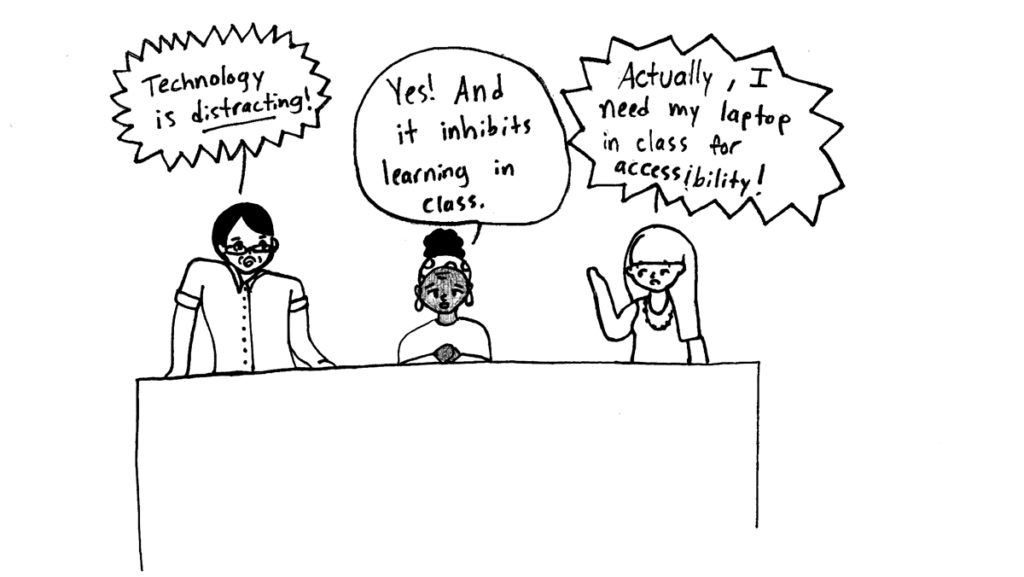Essentially, since the conception and widespread usage of electronics in the classroom, higher–education institutions around the world have been caught in a debate about whether electronics improve or worsen students’ learning environments. Even at Ithaca College, many professors have policies that discourage or outright prohibit students from using electronics in class out of fear that the devices will cause students to be distracted from the professors’ lessons. To further engage in this debate, the college is supporting a survey to better understand faculty members’ thoughts on using technology in the classroom.
In February, the college’s Faculty Council also debated whether or not it should change its current policy toward technology. Currently, the college-wide policy — referred to as the “opt-out” policy” — is that technology is automatically allowed in classrooms unless the professor explicitly states otherwise. However, the council discussed the possibility of integrating an “opt–in” policy, meaning the current policy would be reversed so that students are automatically not allowed to use technology in class unless told otherwise or noted in a syllabus policy.
According to a study presented at the American Educational Research Association, approximately 25 percent of students find themselves distracted by technology during their least favorite class, whereas 12 percent of students are distracted even during their favorite. Findings like these have caused many professors at the college and other institutions to utilize their option to “opt out” of technology usage in the classroom. Many professors have also spoken out about their beliefs that all classrooms should favor interaction without technology over using technology during classes and lectures.
However, despite electronics causing distractions for students that were not present prior to their widespread use, one cannot disregard the positive impact electronics has had on academics. Because of electronics, education has, in some ways, become more accessible than ever. Assistive computer-based learning programs have made it possible for students with hearing, visual and cognitive impairments to access higher–education institutions they were previously excluded from, either intentionally or not.
Furthermore, the simple act of typing notes for lectures as opposed to handwriting notes significantly helps students with ADHD and other forms of executive dysfunction comprehend lessons due to the ways they process information. While students would still be able to access these resources with accommodations, many students with disabilities like ADHD are undiagnosed, and a policy prohibiting them from using technology could harm them. Before the college proceeds with any decision it makes regarding technology in the classroom, it needs to carefully consider how students’ experiences have been improved by technology.
When navigating this tech debate, we also need to take into account the financial accessibility of these devices. Despite professors’ mixed feelings about technology, electronic devices are becoming increasingly mandatory in higher education — devices are often needed directly in class for note–taking and electronic activities or to complete typed assignments. Even though electronic devices are more common and necessary in day-to-day life than ever before, they are still priced as luxury items. As a result, students from disadvantaged communities are disproportionately blocked from accessing the same educational experiences as their privileged peers.
This disparity makes having access to technology all the more important for students from disadvantaged backgrounds. Many of these students receive financial aid or have to save a significant amount of money to purchase these devices, and not allowing them to fully access these resources once they obtain them is inconsiderate of their experiences.
While we should be discussing how to mindfully consume our technology so that it does not distract from our abilities to learn, the technology debate needs to focus on issues of equity as well. These nuances about equitable access are often pushed aside when baby-boomer professors chastise millennial and Generation Z college students for their distracting tech use when they should be taking a deeper look at how technology impacts accessibility.














